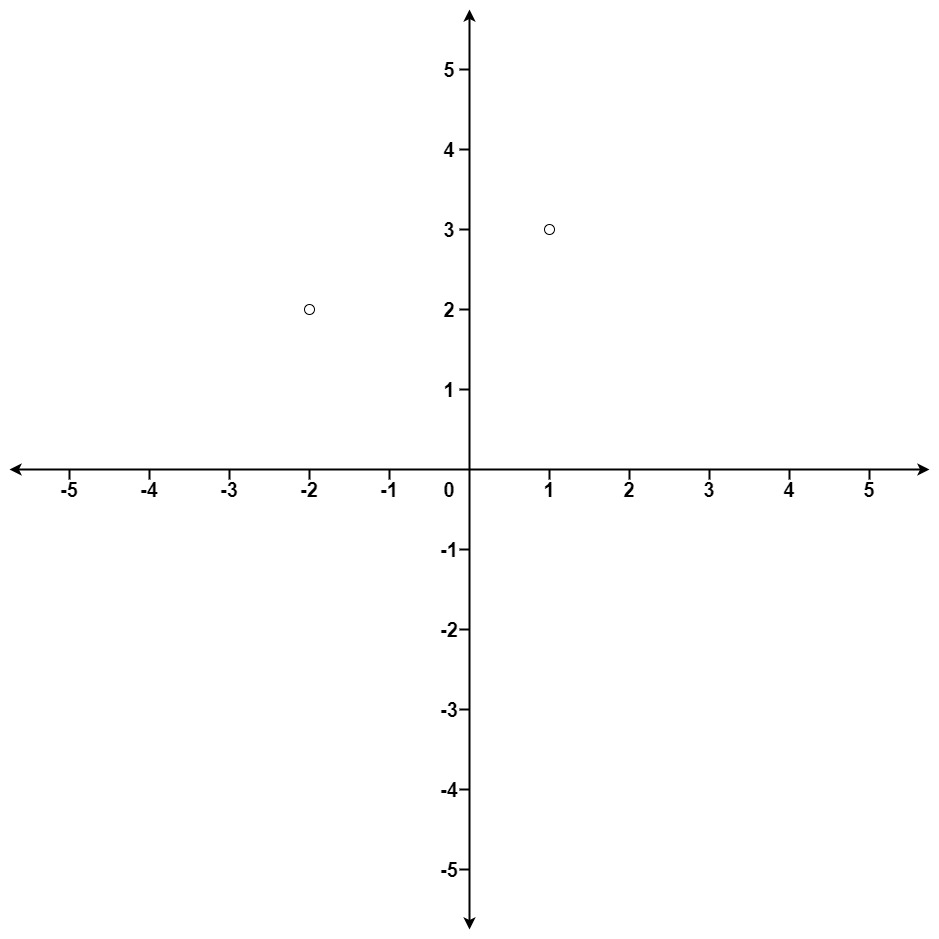
Problem
Given an array of points where points[i] = [xᵢ, yᵢ] represents a point on the X-Y plane and an integer k, return the k closest points to the origin (0, 0).
The distance between two points on the X-Y plane is the Euclidean distance (i.e., √(x1 - x2)² + (y1 - y2)²).
You may return the answer in any order. The answer is guaranteed to be unique (except for the order that it is in).
Example 1:
Input: points = [[1,3],[-2,2]], k = 1 Output: [[-2,2]] Explanation: The distance between (1, 3) and the origin is sqrt(10). The distance between (-2, 2) and the origin is sqrt(8). Since sqrt(8) < sqrt(10), (-2, 2) is closer to the origin. We only want the closest k = 1 points from the origin, so the answer is just [[-2,2]].Example 2:
Input: points = [[3,3],[5,-1],[-2,4]], k = 2 Output: [[3,3],[-2,4]] Explanation: The answer [[-2,4],[3,3]] would also be accepted.Constraints:
・ 1 <= k <= points.length <= 10⁴ ・ -10⁴ < xᵢ, yᵢ < 10⁴
Idea
간단하게 생각할 수 있는 방법은 원점으로부터 거리를 구한 뒤, 해당 거리로 정렬을 하는 것이다.
정렬한 뒤 index를 사용해 주어진 points를 array로 만들어 리턴하면 된다. (O(NlogN))
그런데 Solution을 보면 O(N)으로 풀 수 있는 방법이 있다. Binary Search나 Quick Select를 이용하는 방법인데, 시간이 날 때 읽어봐야겠다.
Solution
class Solution {
public int[][] kClosest(int[][] points, int k) {
int[][] squares = new int[points.length][2];
for (int i=0; i < points.length; i++) {
squares[i][0] = i;
squares[i][1] = points[i][0] * points[i][0] + points[i][1] * points[i][1];
}
Arrays.sort(squares, (int[] a, int[] b) -> { return a[1] - b[1];});
List<int[]> res = new ArrayList<>();
for (int i=0; i < k; i++) {
int index = squares[i][0];
res.add(new int[]{points[index][0], points[index][1]});
}
return res.toArray(new int[res.size()][2]);
}
}Quick Select는 다음과 같다.
class Solution {
public int[][] kClosest(int[][] points, int k) {
// Precompute the Euclidean distance for each point,
// define the initial binary search range,
// and create a reference list of point indices
double[] distances = new double[points.length];
double low = 0, high = 0;
List<Integer> remaining = new ArrayList<>();
for (int i = 0; i < points.length; i++) {
distances[i] = euclideanDistance(points[i]);
high = Math.max(high, distances[i]);
remaining.add(i);
}
// Perform a binary search of the distances
// to find the k closest points
List<Integer> closest = new ArrayList<>();
while (k > 0) {
double mid = low + (high - low) / 2;
List<List<Integer>> result = splitDistances(remaining, distances, mid);
List<Integer> closer = result.get(0), farther = result.get(1);
if (closer.size() > k) {
// If more than k points are in the closer distances
// then discard the farther points and continue
remaining = closer;
high = mid;
} else {
// Add the closer points to the answer array and keep
// searching the farther distances for the remaining points
k -= closer.size();
closest.addAll(closer);
remaining = farther;
low = mid;
}
}
// Return the k closest points using the reference indices
k = closest.size();
int[][] answer = new int[k][2];
for (int i = 0; i < k; i++) {
answer[i] = points[closest.get(i)];
}
return answer;
};
private List<List<Integer>> splitDistances(List<Integer> remaining, double[] distances,
double mid) {
// Split the distances around the midpoint
// and return them in separate lists
List<List<Integer>> result = new ArrayList<>();
List<Integer> closer = new ArrayList<>();
List<Integer> farther = new ArrayList<>();
result.add(closer);
result.add(farther);
for (int point : remaining) {
if (distances[point] <= mid) {
closer.add(point);
} else {
farther.add(point);
}
}
return result;
}
private double euclideanDistance(int[] point) {
// Calculate and return the Euclidean distance
return point[0] * point[0] + point[1] * point[1];
}
}Reference
https://leetcode.com/problems/k-closest-points-to-origin/
https://leetcode.com/problems/k-closest-points-to-origin/solution/

